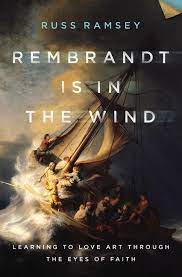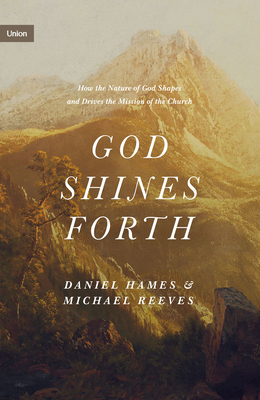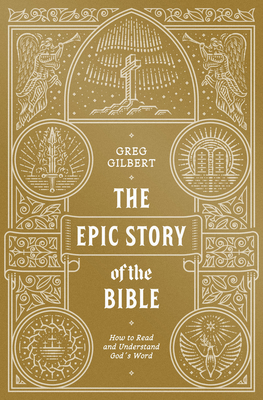Seeking the Face of God: Nine Reflections on the Psalms. 1957/1991/2005. 172 pages. [Source: Bought]
First sentence: There can be no doubt at all but that the greatest matter confronting every man and woman born into this world is that which is put before us by this statement in Psalm 14. [Psalm 14:1] Nothing surely, can be more important than this question of our relationship to God.
The book is a collection of nine sermons originally preached in 1957 by D. Martyn Lloyd-Jones. It was published in the UK in 1991 and the first American edition of this book was published in 2005. All nine sermons are expository sermons expositing verses and chapters from Psalms. Some chapters are linked closely together--same Psalm, different verses. Other chapters are more loosely connected. All have something vital/relevant to say to the church.
These are *some* of the verses he discusses. I am missing one, sadly, and I thought I was doing such a good job of taking notes. Oh well.
Psalm 14:1
Psalm 50:21
Psalm 84:5-7
Psalm 78:41
Psalm 63:1-3
Psalm 63:1-3
Psalm 16:8
Psalm 27:1,3
Early chapters discuss what it is to be a fool, what makes one a fool, what is the greatest folly, etc. He surprised me a bit--in a good way--by then going on to say what is the SECOND greatest folly. That was a thought-provoking chapter. The answer--to spoil the surprise--is Christians who profess to believe but then live as if there were no God. In the past few decades--2005 or later--this wouldn't be a big surprise. This has been stated in various books. But in 1957, this might have been a jolt to those sitting in the pew. [I don't think this message would be preached from the pulpit these days--unless you are Paul Washer.]
Quote: Is there any greater folly than the folly of saying there is no God? It is the folly of people who say they believe in God but who in the tenor of their lives and in the whole of their conduct daily forget God and live exactly as if He did not exist.
All of the chapters focus on man's relationship with God and God's relationship with man.
I definitely enjoyed reading this one. I decided to read it now [it's been in my tbr pile probably for a decade] because Martyn Lloyd-Jones is quoted frequently in the ESV Church History Study Bible.
Truth doesn't change. Absolute truth doesn't change. So these sermons are relevant and beneficial. Some of his observations and conclusions do seem a tiny bit dated. He argues, for example, that anyone who does not believe in God [aka unbeliever, the lost, unsaved] is lacking a worldview. He insists that they don't have "any path" or "a path" and that mentally they are just lacking a [systematic] way of viewing the world or making sense of the world. I would disagree with that. I think there are MANY, MANY, MANY worldviews prevalent today, actively being promoted today. There are a lot of "isms" if you will.
Favorite quotes:
Some say, "It's unthinkable that God should ever show what the Bible calls the wrath of God. My whole conception of God excludes the very possibility of wrath. I could not believe in a God who shows this anger against sin and the sinner." So they cut it out, and they do that on the grounds that they cannot believe it, because to them it is unthinkable. So you see, it is their thought that determines everything: "Thou thoughtest that I was altogether such an one as thyself." They are making God in their own image. So they do not hesitate to lay down their ideas as to what God is like and what He ought to do and what He ought not to do. They give their ideas of the love of God, the wrath and the justice of God, and His righteousness. The whole thing is determined by their own thoughts. So they speak about these things, but their whole attitude toward God and toward religion has no basis and no authority whatsoever apart from their own postulates.
Ten times worse than being outside and saying, "There is no God at all" is going to God and to His house in a formal manner only, and indeed almost with the idea that we are conferring some benefit upon Him. How nice of us! How good of us to have gone to a place of worship! We preen and pride ourselves on it.
You will never make yourself feel that you are a sinner, because there is a mechanism in you as a result of sin that will always be defending you against every accusation. We are all on very good terms with ourselves, and we can always put up a good case for ourselves. Even if we try to make ourselves feel that we are sinners, we will never do it. There is only one way to know that we are sinners, and that is to have some dim, glimmering conception of God.
Christ came into the world and died. Why? To bring us to God. It is all about God. It is not some comfortable feeling that you and I have to strive for; it is not having your body healed or a thousand and one other things. The whole object of Christ and His death upon the cross, His burial, and His resurrection is to bring us to God. And the ultimate test of our profession of the Christian faith is our thoughts about God, our attitude in His presence, our reverence and godly fear because our God is a consuming fire.
There is nothing more awful and reprehensible than to talk about Him and then to forget all about Him, and to live as if He were not there at all. Are you calling upon God for salvation? Have you seen your desperate need of Him? Do you know that you will have to face Him in the Judgment?
Perhaps there will be, as it were, a tape-recording played back to you of all you have said about God and how you have spoken about Him and His laws and declared His statutes. And then it will be read out to you-the things that you have done, the life you have lived, your self-centeredness, your selfishness, the fact that your whole life was not surrendered to God and lived to His glory and to His praise.
It is a tremendous thing to say you believe in God, but look at the implications.
Christian truth is a kind of ellipse, and there is one focus-God; but there is also another focus-man. And if we are to enjoy the experience of this writer, we must be as right about man as we are about God.
Men and women must realize their need, and the only people who know what it is to enjoy the blessings of Christian salvation are those who have already discovered that need. The tragedy, ultimately, of so many, indeed of all outside Christ, is that they have never really seen their need. That is why they have never seen their need of Christ; that is why they do not fly to Him as Savior; they have never seen themselves as they really are.
There is no knowledge of God except in Jesus Christ and Him crucified. He is the sacrifice that is placed upon the altar: He has made "his soul an offering for sin" (Isa. 53:10). "I am the way, the truth, and the life," He says of Himself. "No man cometh unto the Father, but by me" (John 14:6).
We are God's people, and we are meant to show forth His praises, His excellencies, His virtues. So the question that we must ask ourselves is, are we doing that? Are we individually enjoying the blessings of the Christian life as we should? What do we find as we look back and review the past year?
If we are uncertain about our forgiveness, we are definitely limiting God, and we have no right to be like that. God is our Father, and a father never wants his children to be unhappy, to be uncertain about the relationship-such a thing is inconceivable. So we have this abundant teaching in the Bible to give us certainty and assurance. And if we do not have it, we are guilty of putting a limit upon what is possible.
So if you want to set the Lord always before you, spend much time in regular, daily reading of the Bible. And let it be systematic reading, not just picking it up at random and turning to a favorite psalm and then to somewhere in the Gospels. No; it must be Genesis to Revelation! Go through the Book year by year. I think any Christian should be ashamed who does not go through the entire Bible once a year. Go through it systematically.
God's Word speaks to you-listen to Him, and you will come into His presence. Set Him before you by reading the Bible. You can do this also in prayer-talking to God and listening to Him.
Set the Lord always before you-the Lord Himself, not merely activities in His kingdom-because if you do not do this, you will become very dry in all your activism. Your heart will become cold, and in the time of need and trouble and trial you will not know where you are, and you will be a poor witness to the faith and to the grace that you have received and that you hold.
© Becky Laney of
Operation Actually Read Bible

















